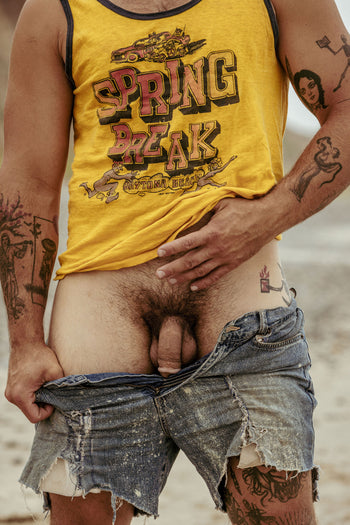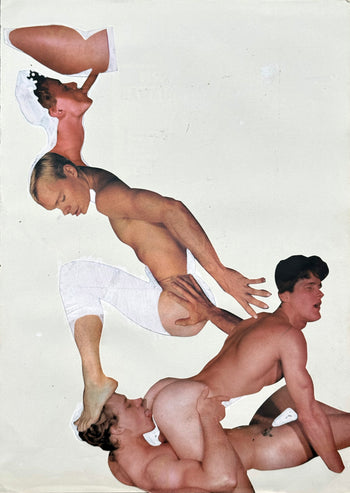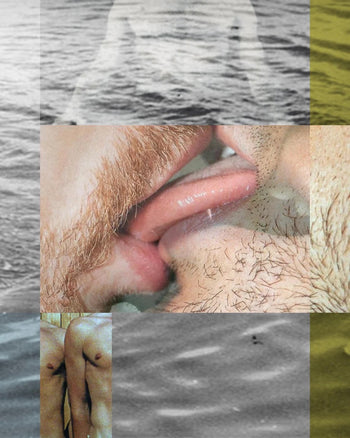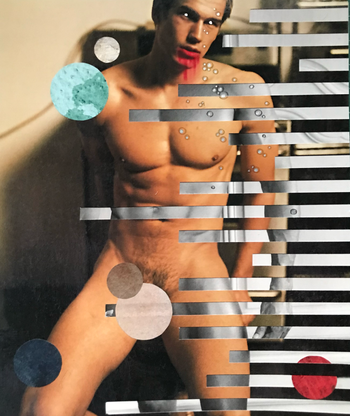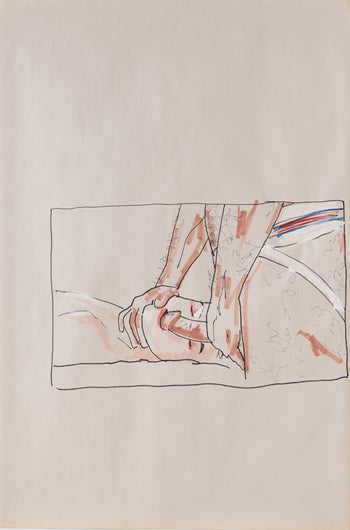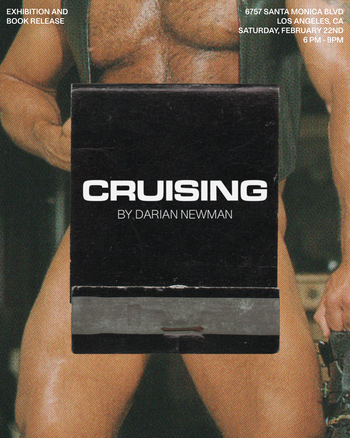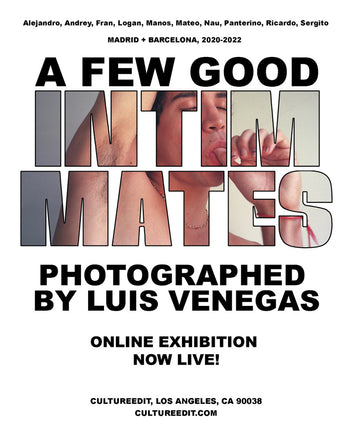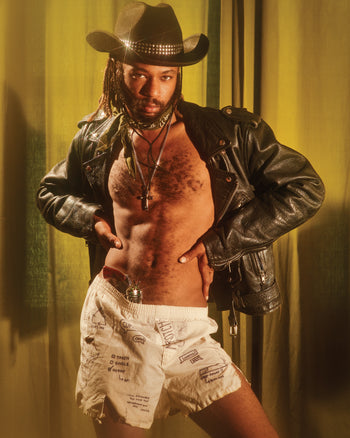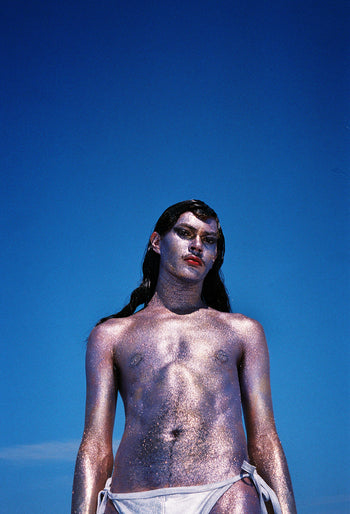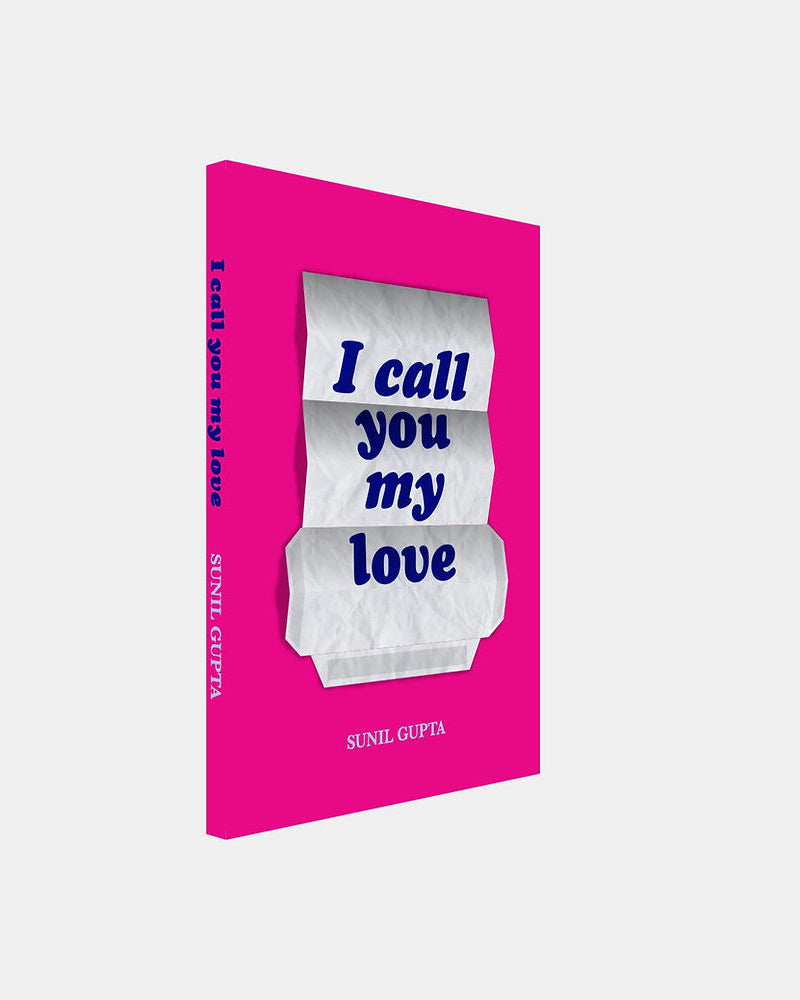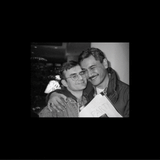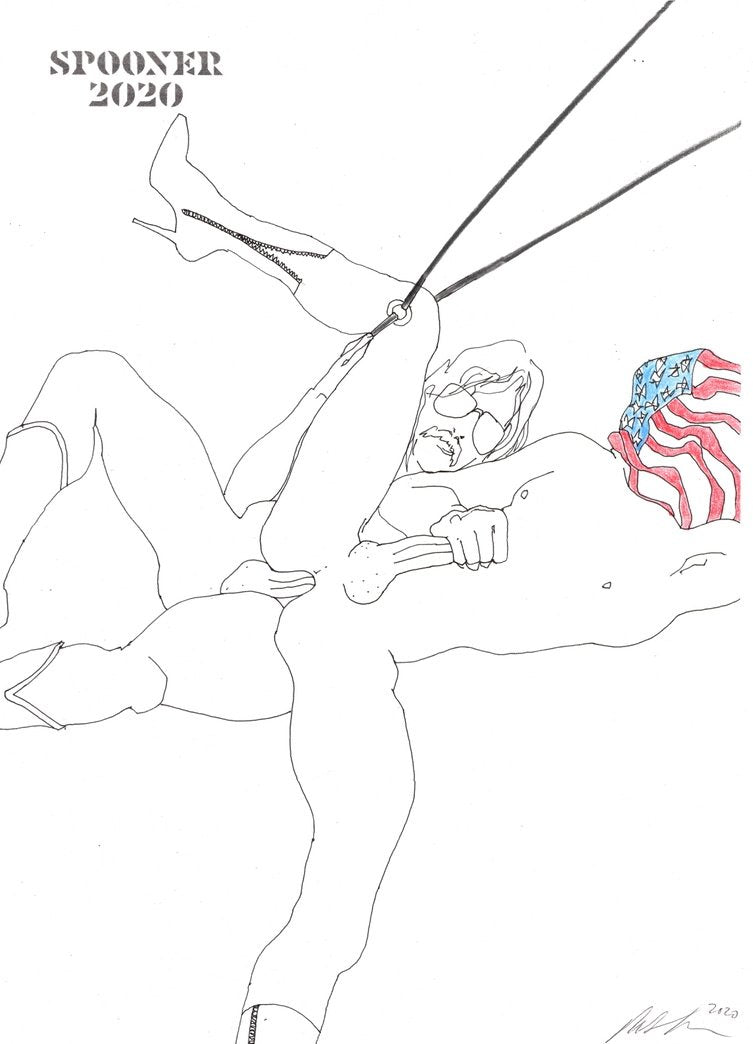Baron Books
I call you my love by Sunil Gupta
Details
I call you my love contains an extended, years-long correspondance exchanged between lovers Sunil Gupta and Steve Dodd from the mid-'80s to the early '90s. During this time, Steve was completing his PhD in America while Sunil worked in London, and their frequent and detailed letters are a testament to the strength of their transatlantic romantic connection. In addition to the letters, this publication includes photographs of the couple, taken by Sunil, alongside ephemera from their written exchanges — envelopes, poetry, sketches, and newspaper clippings. The book also features a collaborative series, "Pretended" Family Relationships, composed of Sunil's photographs and accompanied by lines from one of Steve's poems.
This breadth of material serves as an archive not only of one couple's deep emotional, physical, and creative long-distance partnership but also of queer love and community thriving in the face of oppression and illness.
The letters are suffused with contextual references, documenting the historical reality for queer individuals living through the '80s and '90s. In the UK, a Thatcherite government introduced Section 28 in 1988, repressing queer visibility in mainstream culture and legally formalising a growing, nationwide homophobic sentiment. References to Thatcher and Section 28 populate the letters, as the two men express concerns over the dangerous effects of this legislation. Indeed, the series title "Pretended" Family Relationships is taken directly from the language of Section 28. By reclaiming this language, using it to describe instead images of queer couples and photographs of people protesting the Clause, Sunil and Steve enact a defiance that encompasses both public rebellion and the private act of existence-as-resistance. Across the pond, Steve repeatedly expresses fears about rising conservatism, writing of his alarm at a potential Bush presidency. Compounding this is the ongoing international AIDS crisis, which the partners refer to frequently — mentioning people in their circle who have contracted the HIV virus as well as concerns around the rising death toll. Against this political backdrop, Sunil and Steve conduct their relationship with each other and establish themselves as being part of a wider queer network. Brief mentions of these devastating events are sandwiched into descriptions of paying bills, sexual encounters, gossip from exhibition openings, planning trips, etc. Thus, these letters explore the contrast between public oppression and private love, joy, and mundanity, revealing the subversive potential of intimate queer relationships at this time. 'The Personal is Political' is a phrase that is often bandied about, but Gupta's letters indeed reveal the quiet integrity of loving that is simply and intimately radical.
Sunil and Steve's letters portray the nuances of a long-distance, long-term relationship and are thus a document of a deep emotional and physical attachment. At once wry and mundane, intellectual and domestic, loving and admonishing, their correspondence evinces a unique familiarity and respect for one other. The letters are both immensely vulnerable and offer an insight into the practical dimensions of their love affair, such as arranging travel, looking for someone to mind the cat, or getting upset if one or the other has not written in a while. Beyond this, they also contain yearnings for intimacy and explicit descriptions of their past trysts, as well as fantasies to explore upon being reunited. The letters are crucial documentation of intimate homosexual desires, as we are offered a private look into their free expressions of attraction for one another, even as queer sexuality was used as a tool of political fear-mongering in the public realm. Beyond the physical, their ability to maintain a connection without being able to regularly touch reveals the strength of their love and the power of letter-writing to transmit these feelings across continents.
Sunil Gupta (b.1953, New Delhi) is a photographer and writer whose work focuses on race, queer identity, community, public/private tensions, and migration. His practice often involves documenting marginalised subjects, mainly queer individuals, bringing visibility to those who remain largely unseen in society. He has worked internationally in India, London, Canada, and the US, bringing his complex diasporic and migratory experiences to his practice. Gupta's work is housed in public collections, including the Museum of Modern Art, Tate Britain, Museum of London, the Metropolitan Museum of Art, Philadelphia Museum of Art, Tokyo Metropolitan Museum of Photography, the Royal Ontario Museum, George Eastman Museum, Baltimore Museum of Art, Kiran Nadar Museum of Art, Arts Council UK, Museum of London, The Victoria and Albert Museum, and Harvard University. In 2020, his work was included in the Barbican exhibition Masculinities, Liberation through Photography. His published and edited works include: We Were Here: Sexuality, Photography, and Cultural Difference (2022), Christopher Street (2018), Delhi: Communities of Belonging (2016), Queer (2011), Wish You Were Here (2008), Pictures from Here (2003), Disrupted Borders(1993), Ecstatic Antibodies (1990), and an Economy of Signs (1990). In 1989, he co-founded Autograph, the Association of Black Photographers. In 1992, he was awarded an INIVA curatorial franchise, the Organisation for Visual Arts, which works to promote cultural diversity in the visual arts.



